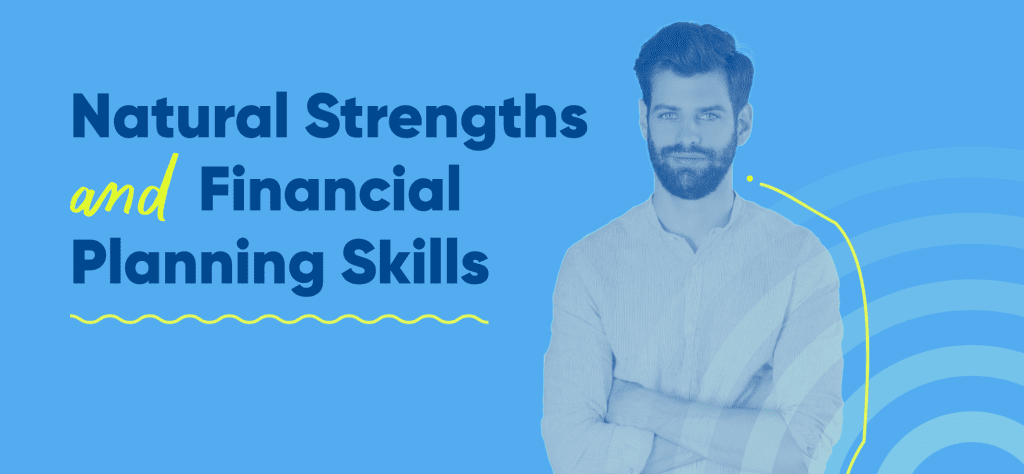Natural Strengths and Financial Planning Skills

To be an effective financial planner, it’s essential to know your strengths. You need to feel confident about what you can offer your clients. Everyone has some things that they are naturally better at. The key to being a good financial planner is recognizing your strengths and figuring out the best way to use them to help your clients.
Think about what you’re good at
It can be challenging to identify your own strengths. For a lot of us, trying to list what we’re good at feels arrogant or braggadocious. But it’s not about showing off or thinking you’re better than others. It’s simply about being honest with yourself and recognizing areas where you have some natural gifts.
For example, maybe you’re an empathetic person: It’s second nature to you to understand how others are feeling. This can be an excellent strength in financial planning because it makes it easy for you to truly understand your clients’ concerns and desires. You can provide compassionate advice that honors your clients’ values.

Maybe you’re not naturally empathetic, but you’re a very logical and analytical thinker. These strengths can also translate to excellent financial planning skills. Analytical thinking and problem-solving go hand in hand, so you can trust yourself to come up with an effective and realistic plan for even the most challenging client. Having the ability to view situations logically can help you provide solid advice, especially to clients who tend to make spending decisions based on their emotions.
These are just two examples of how natural strengths can apply directly to financial planning. There are countless others. Once you know what you’re good at, you can decide how to best use those gifts to help your clients.
Don’t ignore your weaknesses
As important as it is to know your strengths, however, it’s just as vital to know your weaknesses. Being honest with yourself about the things that are difficult for you is the first step toward figuring out how to overcome those weaknesses. Everyone has things they are good at and things they struggle with – there’s no need to feel bad that you can’t do everything perfectly.
One of the things I figured out about myself early on in my career was that fashion isn’t one of my strengths. I remember preparing to go to my first national conference and realizing that I had no idea what to wear.
I could have just worried about it and jeopardized my self-confidence, but instead, I asked for help. I reached out to a friend who always looked professional and asked her to help me pick my outfits for the conference.
She helped me build a wardrobe for the conference, and her expertise helped me feel 100% more confident and prepared. Fashion was something she was better at, but by asking for her help, I got to benefit from one of her strengths. The first step toward getting her help was admitting that I needed it.

Bring your best to every client
Being a confident professional requires you to recognize what you’re good at and know how to apply those strengths in your job. Take some time to assess yourself honestly and consider how your natural strengths translate into essential financial planning skills.
It’s also OK to recognize what you’re not good at – in fact, I think it’s vital! When you recognize where you need help and ask for it, you give someone else a chance to apply their strengths. It’s a win-win for everyone.
What are your strengths? How do you use them to be a better financial planner? Have you come up with effective ways to offset your weaknesses? Let me know in the comments!
Want more career advice and tips to hone your financial planning skills? Join the Amplified Planning community. You’ll get our weekly newsletter delivered to your email inbox and have the chance to participate in in-depth discussions with other financial professionals through our online forum. It’s a great way to build your professional network and find opportunities to use your natural strengths to help others. Sign up today!
